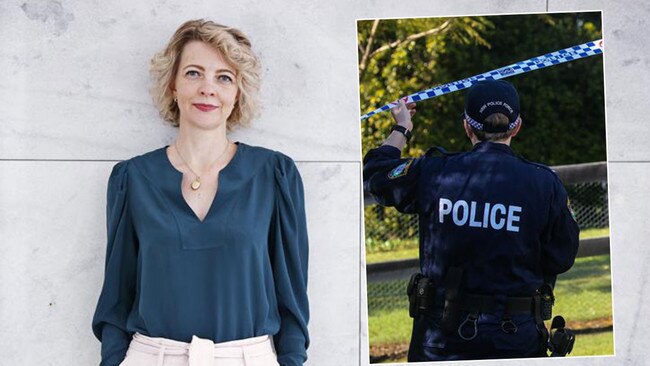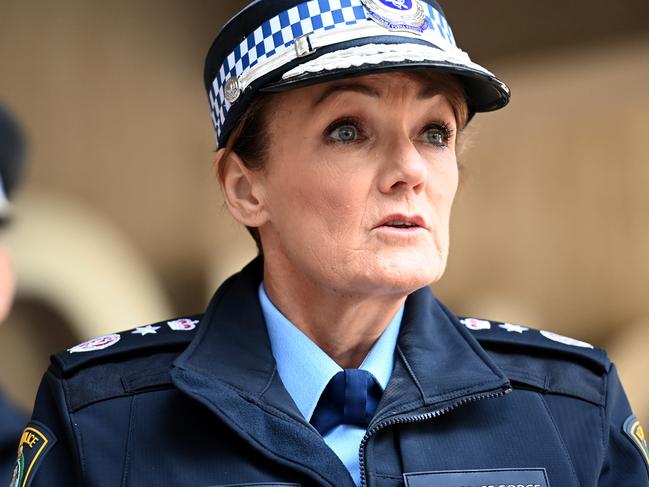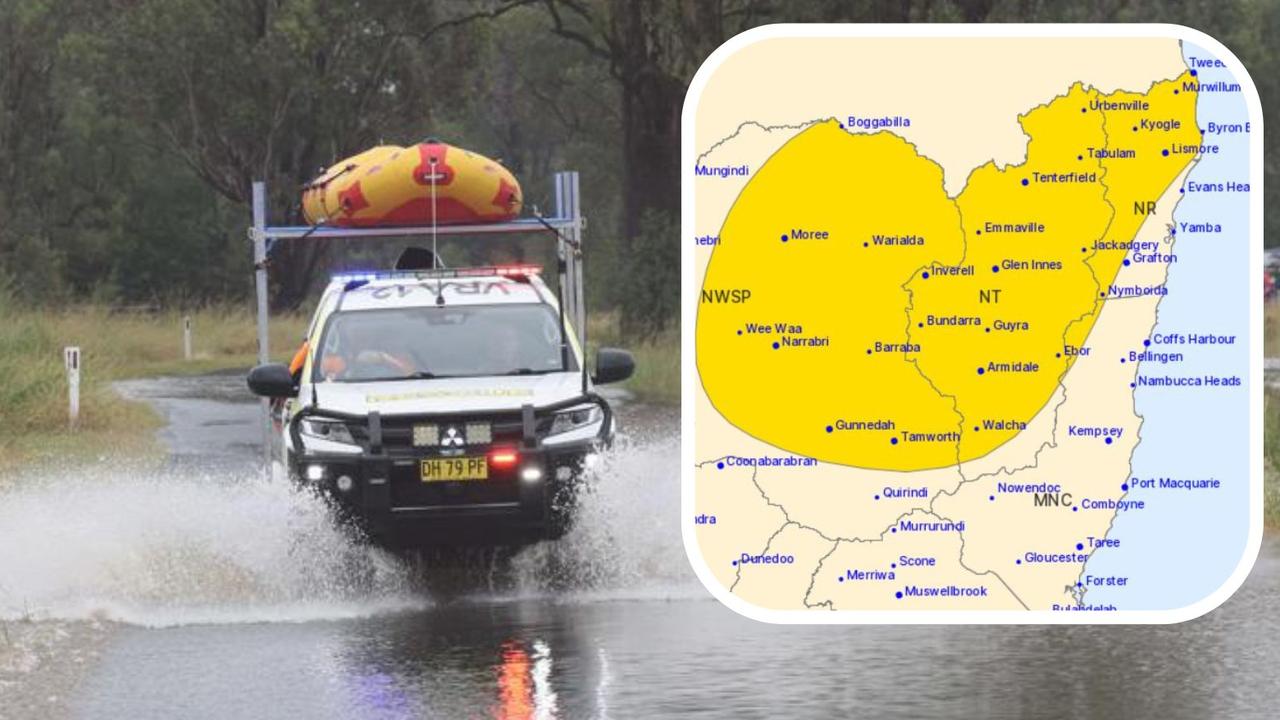Saving the force: NSW Police $79m plan to fight officer suicides, stress
The NSW police force has unveiled a massive health and wellbeing plan in a bid to curb the exodus of officers on stress leave and halt a disturbing rate of officer suicide.

NSW
Don't miss out on the headlines from NSW. Followed categories will be added to My News.
Cops in the most remote stations across NSW will have access to mental health counsellors, nurses, dietitians and even personal trainers in the state’s biggest ever spend on police welfare.
In a bid to curb the exodus of officers on stress leave — and stop the disturbing rate of police suicides — the hierarchy is committing to a radical plan where the health and wellbeing of men and women on the frontline is top priority.
Acknowledging police officers see the very worst of humanity on any given day with no warning of the horror in store, senior police are devising ways to better support not only its workforce but officers who need an exit strategy.
With eight police suicides in NSW last year alone, the urgent need to better protect and support the troops is at the forefront of Commissioner Karen Webb’s agenda for the new year and something the NSW Government has committed to investing $79 million to over the next five years.

In an exclusive interview with the Sunday Telegraph, Acting Deputy Commissioner Corporate Services Kenna Ackley sheds light on the key changes as part of the Pulse Program and gives some insight into changes still in the works to better protect and support damaged cops teetering on the edge.
ROTATION
Police officers from the rank of constable to inspector who have been in the same role for five years, will gain experience in other commands and specialised areas for several months at a time.
“People retention is about how people are stimulated and engaged with their work,” Ms Ackley said.
“This is really something that’s in response to what the workforce has told us they would like, not something that’s come from the top down but the bottom up.”
The secondment approach, which has the support of the NSW Police Association, will see officers get exposure in different fields of policing.

“This is not a transfer policy. Getting experience in a different part of our organisation will help them determine their next steps and allow them to gain valuable new skills to take back to their command,” she said.
“This will happen at all ranks from constable up to inspector after five years in a particular role.”
TRANSITION
For the first time there will also be a dedicated career transition team who can provide support to officers who may be medically retiring.
“They will have access to vocational counselling and skill development so they can have a look at what might be the next stage in their career and have the tools to succeed in a new career,” Ms Ackley said.
“Engaging these officers before they go off and really help them transition into civilian life is crucial.”
Acknowledging it’s a massive struggle for many long-term police officers who feel they lose part of their identity and self worth once they hand in their uniform, the Pulse program shows them they can still have a second fulfilling career if that’s what they chose.
“While some people have six or seven careers in their lifetime, the new generation may come in and view being a police officer as a stage in their career.
“It can be so defining for people who have served for a longtime, so being sensitive about that but very supportive about how they can still successfully transition into something else, having a fulfilling second career as a former police officer is something very important.”
MENTAL HEALTH SUPPORT
The Police Force will invest in expanding the number of mental health clinicians available to police officers across the state and embed them in the field – including remote regions and specialist commands.
There will also be better training for managers so they are able to better support their officers in the field and recognise when they may be showing signs of stress.
More focus will be placed on the E-well check system – the electronic platform where officers can confidentially self report their mental health status.
Reports are monitored and triaged and the most at risk officers offered additional support.
The NSW Police Force has embarked on a recruitment campaign, “a big investment in getting the right mental health professionals in working for the organisation,” Ms Ackley said.
“It’s a real focus on early access to treatment. If people are starting to feel they need support dealing with a mental health issue we want to acknowledge that early, support them to remain at work while getting help”.
PHYSICAL HEALTH SUPPORT
“While our major focus is on mental health, part of a police officer’s overall wellbeing is their physical health and fitness, they need to feel good physically, we look at how those two things are intertwined,” Ms Ackley said.
“We will have periodic health checks, nurses, dietitians, physical trainers, strength and conditions coaches, making them readily available across state so police officers don’t have to come to Sydney, we are taking the support out to people.
“The needs for example of officers in metro Sydney are going to be different to the needs of someone in a more remote area say like Moree or Broken Hill.”

There will also be periodic health checks and access across the state to nurses, dietitians, physical trainers and strength and conditioning coaches.
“It will be a hub and spoke model, with centres in certain places so officers don’t have to come to Sydney for training and support,” Ms Ackley said.
“It also acknowledges that officers in remote country areas have different needs to officers in metropolitan areas so we want to have a consistent but flexible approach so we can service our troops across the state.”
There will also be a dedicated employee wellbeing unit – where all the services including peer support, e-well check seeing, chaplaincy, family support – will all be co-ordinated.
COPS SEEKING DISCHARGE
Ex-police officers have told the Saturday Telegraph they have been traumatised by the complicated, drawn out treatment they receive at the hands of insurance companies as they navigate leaving the NSW Police Force.
Many report being under constant surveillance by private investigators working for insurance companies hunting for evidence to support their claim they are unfit for the job.
When asked, Ms Ackley said acknowledged the system was complicated and more work is being done in this area.
“The nature of the job and nature of the work and exposure to highly traumatic things on a very regular basis means the focus on the mental health of our troops is so critical,” she said.
“We are reviewing insurance part of the puzzle, it’s very much in our sites. Working out how we support someone who has lodged a claim, how we engage with them, hold insurance companies to account, is something we are focused on.
“Also making sure they know the avenues available to them to come back in and have discussion about ongoing management and likelihood for their return. That’s a big piece of work and we recognise it as a major side of the story.
“We are not ignoring it and absolutely acknowledge and are trying to do better to improve what we know are the pain points in the process. We know the issues and we are investing in our workforce and the organisation that’s really important for us.”
Originally published as Saving the force: NSW Police $79m plan to fight officer suicides, stress


